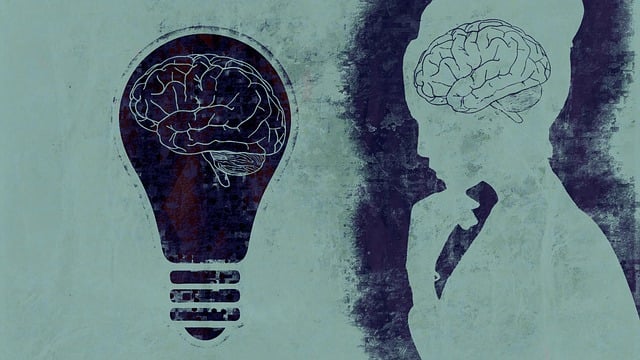Anxiety disrupts daily life when persistent, with causes from genetic factors to societal pressures. Recognizing signs like restlessness and rapid heartbeat is crucial. Longmont Divorce Therapy uses Cognitive Behavioral Therapy (CBT) techniques, including mindfulness meditation, progressive muscle relaxation, and deep breathing exercises, to manage anxiety during challenging transitions like divorce. Lifestyle modifications, such as nutrition, regular exercise, adequate sleep, and mindfulness meditation, enhance mental well-being. Cultural sensitivity in mental healthcare creates inclusive environments catering to diverse client needs, indirectly supporting anxiety management through healthy communication.
Anxiety is a common challenge, but effective management techniques can help you regain control. This comprehensive guide explores various strategies to combat anxiety, from understanding its signs and causes to powerful therapeutic approaches like Cognitive Behavioral Therapy (CBT). Discover mindfulness practices, relaxation techniques, and lifestyle changes that promote mental well-being. For personalized support in Longmont, consider divorce therapy options that cater to your unique needs, offering tools to navigate life’s stressors with resilience.
- Understanding Anxiety: Recognizing the Signs and Causes
- Cognitive Behavioral Therapy (CBT): A Powerful Tool for Managing Anxiety
- Mindfulness and Relaxation Techniques to Calm Your Mind
- Lifestyle Changes: Nutrition, Exercise, and Sleep for Better Mental Health
Understanding Anxiety: Recognizing the Signs and Causes

Anxiety is a normal human emotion, but when it becomes persistent and overwhelming, it can significantly impact daily life. Recognizing the signs and understanding the causes of anxiety are crucial steps in managing this condition effectively. Common symptoms include heightened restlessness, rapid heartbeat, difficulty concentrating, and feelings of dread or fear. These sensations often manifest physically as well, such as through tense muscles, headaches, and insomnia.
The underlying causes of anxiety can vary widely, from genetic predisposition to environmental factors. Traumatic life events, such as a Longmont Divorce Therapy session, significant stress at work or school, or even social pressures, can trigger anxiety disorders. Additionally, Mental Health Policy Analysis and Advocacy highlights the role of societal and cultural norms in shaping mental health perceptions and access to treatment. Understanding these triggers is essential for implementing appropriate coping strategies, including Mood Management techniques and Stress Reduction Methods.
Cognitive Behavioral Therapy (CBT): A Powerful Tool for Managing Anxiety

Cognitive Behavioral Therapy (CBT) is a highly effective approach to managing anxiety, offering individuals a powerful tool to combat their fears and concerns. This evidence-based therapy focuses on identifying and changing negative thought patterns that contribute to anxious behaviors. By doing so, CBT empowers clients to develop healthier coping mechanisms and improve their overall well-being.
Longmont Divorce Therapy incorporates CBT techniques to help individuals navigate challenging life transitions, such as divorce or separation, with reduced anxiety levels. Through this process, clients learn to challenge irrational beliefs, replace negative thoughts with more realistic ones, and practice mindfulness meditation as a self-care routine development for better mental health. Additionally, communication strategies are explored, enabling individuals to express their needs and emotions effectively while fostering healthier relationships.
Mindfulness and Relaxation Techniques to Calm Your Mind

In today’s fast-paced world, anxiety can creep up on us, but Longmont Divorce Therapy offers powerful tools to reclaim your inner calm. Mindfulness and relaxation techniques are simple yet effective ways to manage stress levels and promote mental wellness. By focusing on the present moment and cultivating a sense of awareness, individuals can break free from anxious thoughts that linger in the mind. This practice involves observing one’s breath, noticing bodily sensations, and accepting thoughts without judgment, creating a peaceful sanctuary within.
Longmont Divorce Therapy also emphasizes the importance of relaxation techniques such as progressive muscle relaxation and deep breathing exercises. These practices help to reduce physical tension and calm the nervous system, allowing individuals to feel more grounded and centered. Incorporating mindfulness and relaxation into daily routines can foster resilience, boost confidence, and enhance overall well-being, providing a sense of balance in even the most challenging situations.
Lifestyle Changes: Nutrition, Exercise, and Sleep for Better Mental Health

In the realm of anxiety management, lifestyle changes play a pivotal role in fostering better mental health. Nutrition is a key aspect; incorporating foods rich in omega-3 fatty acids, vitamins B and D, and magnesium can significantly impact mood regulation. Longmont Divorce Therapy often emphasizes the importance of a balanced diet for clients dealing with anxiety disorders. Regular exercise is another powerful tool; activities like yoga and walking release endorphins, reducing stress hormones and promoting relaxation. Quality sleep is equally crucial; aiming for 7-9 hours nightly helps stabilize emotions and cognitive functions, enhancing one’s ability to manage anxious thoughts.
Integrating practices such as mindfulness meditation can further strengthen these lifestyle changes. This ancient technique teaches individuals to be present in the moment, quieting racing minds and reducing anxiety symptoms. Additionally, cultural sensitivity in mental healthcare practice is essential; understanding and respecting diverse perspectives helps create inclusive environments that cater to various client needs. Even conflict resolution techniques, while not directly related, can indirectly aid in managing anxiety by promoting healthy communication and relationship dynamics, which are crucial for overall well-being.
Anxiety management is a comprehensive journey that involves understanding your mind, adopting effective therapeutic tools like CBT, and making positive lifestyle changes. By recognizing signs and causes, incorporating mindfulness practices, and embracing nutritional, exercise, and sleep habits tailored for mental health, individuals can effectively navigate and overcome anxiety. Longmont Divorce Therapy offers valuable insights into these techniques, empowering folks to lead calmer, more fulfilling lives. Remember, with the right strategies, managing anxiety is achievable, fostering resilience and enhancing overall well-being.









